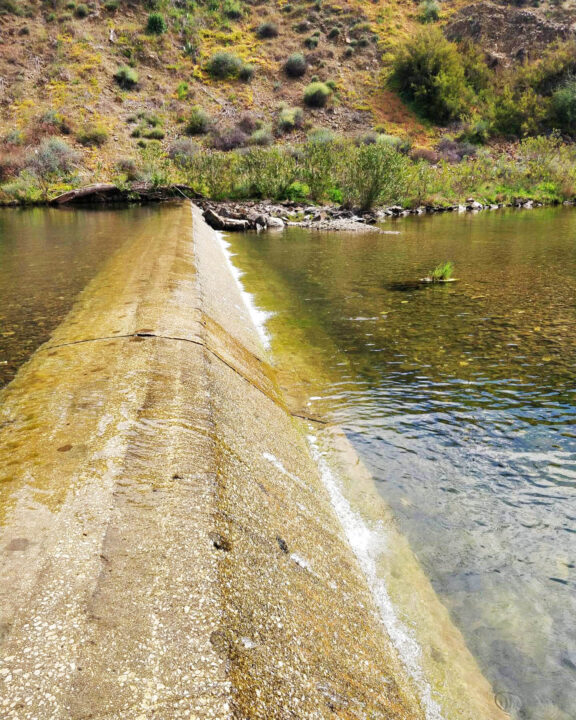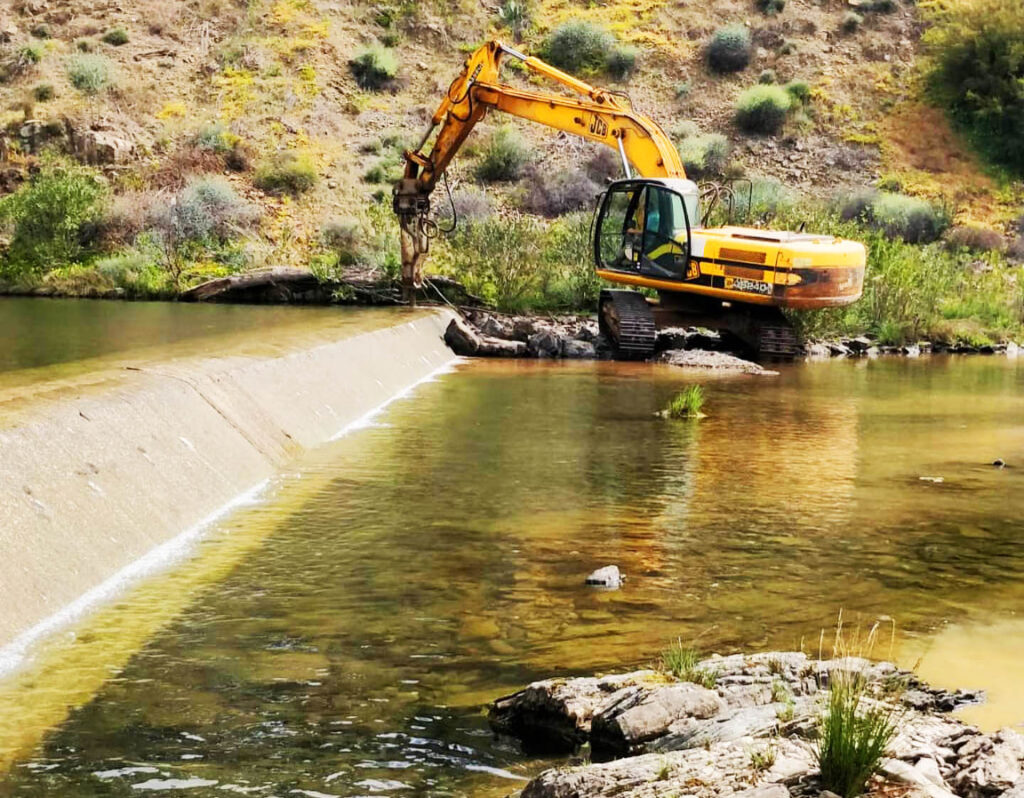The ANP|WWF today launches a public petition «so that there is a budget forecast for the removal of river barriers in Portugal and the commitment of the Government to accelerate these removals, in order to fulfill the objectives of ecological restoration of the rivers», taking into account « the negative impact that river barriers have on river ecosystems and biodiversity decline».
«The removal of river barriers is a tool for restoring nature and is the most effective and least expensive way to permanently restore the functioning of these ecosystems. The Government has to see river restoration as an urgency and priority if we want to be in line with the 2030 Biodiversity Strategy, which provides for the release of at least 25.000 kilometers of rivers in Europe», says Ruben Rocha, ANP| Water coordinator | WWF.
This petition starts on the same day that the ANP|WWF starts its first removal of an obsolete river barrier – the Galaxes dam, in the municipality of Alcoutim – which will restore the river connectivity of 7,7 km of Ribeira de Odeleite .
The demolition of this barrier is being carried out with the support of the program European Open Rivers Program, a private organization that allocates funds dedicated to the removal of river barriers.
WWF has been alerting to the fact that two thirds of the world's largest rivers are prevented from flowing freely, due to the action of these infrastructures. "This has led to catastrophic consequences for nature - freshwater biodiversity is suffering a decline of around 84% in its species since 1970, with 1/3 of freshwater fish currently threatened with extinction", stress the environmentalists. .
In Portugal, the Working Group of the National Water Council published in 2017 a survey on obsolete barriers that must be removed, since they no longer fulfill any function. However, very little has been done to move forward with these removals. In 2021, Spain removed a total of 108 barriers, while Portugal removed only one of over 8.000 known obsolete barriers.
Ruben Rocha concludes by stating that «with regard to the renaturalization of rivers, we cannot forget that when we return rivers to nature, we also return better quality water to people, we return more conditions for the survival of animal species and of vegetation in the river and on its banks, and thus restore this entire ecosystem».

The first removal of an obsolete river barrier – the Galaxes dam, in the parish of Vaqueiros, municipality of Alcoutim – began this Monday, March 27th. The demolition of this river barrier is being carried out in partnership with the Municipality of Alcoutim and with the support of the European program Open Rivers Program.
This removal, which will free up about eight kilometers of the course of the Odeleite stream, in the Guadiana river basin, will be carried out over 10 days using a rotating machine (excavator) with a hydraulic hammer.
After the demolition of the dam, all operations to remove, clean and transport the waste to a licensed landfill will be carried out.
Once these operations are completed, the river restoration process will begin, namely the renaturalization of the riverbanks through the planting of indigenous flora.
A team of researchers from the Instituto Superior de Agronomia of the University of Lisbon carried out a sampling of fish, aquatic invertebrates and diatoms. This work will also be carried out after the barrier has been removed, in order to assess its potential effects on river biodiversity.
The ANP|WWF identified this dam to be removed with the aim of improving the habitat conditions of several endangered fish species, with emphasis on the saramugo – the most endangered non-migratory fish species in Portuguese fresh waters, endemic to the basin of the Guadiana river – and for the eel, which was part of the river's biodiversity and is still used in local cuisine.
This removal will therefore be essential to restore fluvial connectivity to 7,7 km of river and to boost the conservation of fish populations and several species of riverside birds and mammals.
To sign the petition, click here.



















Comments